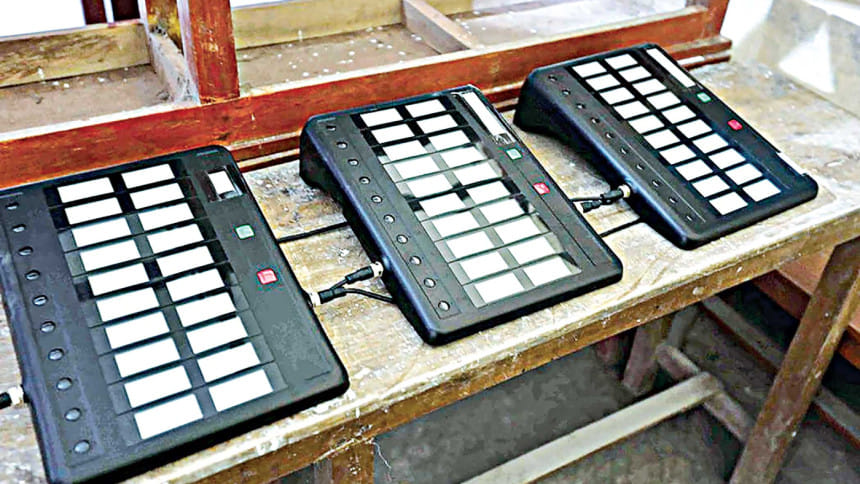It’s Tariqat, once again

Bangladesh Tariqat Federation has become a curious case in the country's political landscape, which is now murky in the absence of effective opposition parties.
"What Tariqat proposes, happens" is the new buzzword in political circles. Quizzically though, the ruling Awami League, which mostly opposes opposition demands, was always found agreeing to Tariqat proposals.
In line with events over the last few years, the Election Commission's decision to use EVMs (electronic voting machines) marked the latest feat of Tariqat, an Islamic party of the country with only one MP in parliament.
Of the 39 registered political parties, 19 including Jatiya Party -- the main opposition in parliament -- and the BNP, have been opposing the use of EVMs in the next national elections.
At the EC's dialogue with political parties during July 17-31, only three parties -- the AL and its ally Samyabadi Dal and like-minded Bikalpa Dhara Bangladesh -- demanded that the EVMs be used in the polls.
But Tariqat was very specific with its proposal: EVMs for 150 seats. And that is the decision the EC ended up taking.
Tariqat Federation hit the bullseye again. But was the arrow really shot in the dark?
The party is on a winning spree when it comes to suggesting something on a national issue and finding its recommendations accepted.
It had proposed former senior secretary Kazi Habibul Awal as Chief Election Commissioner and the president appointed Awal as the CEC.
It had recommended Brig Gen (retd) Ahsan Habib Khan as an election commissioner, which he became.
Five years ago, Tariqat Federation had recommended KM Nurul Huda for CEC and ultimately, he got the post.
Of the 39 registered political parties, 28 joined the recent dialogue with the EC and nine, including the BNP, skipped. Two parties wanted another time for talks.
During the talks, 10 parties, including the main opposition in parliament Jatiya Party and the Gono Forum, were vehemently against the use of EVMs.
Tariqat Federation claimed to be more meticulous than others when asked why its recommendations were accepted while those made by other parties were not.
Its Chairman Syed Nazibul Bashar Maizbhandari told this paper, "Before giving any proposal we always think about it and gave good suggestions, thus those suggestions yielded good results.
"No political party came up with this suggestion [EVMs for 150 constituencies]. But we did. We gave the proposal considering Election Commission's capacity. Election Commission's decision proved our proposal was logical and realistic."
Maizbhandari was confident with their winning streak and said the EC would also accept the first recommendation they made during the dialogue.
"I am sure the Election Commission will decide to hold the elections in phases."
The party during the talks had also asked for the deployment of army personnel for protecting the ballot papers and the EVMs and forming a monitoring committee with officials of home and defence ministries.
The EC on August 22 said it was reviewing the proposal for general elections in phases.

 For all latest news, follow The Daily Star's Google News channel.
For all latest news, follow The Daily Star's Google News channel. 




Comments